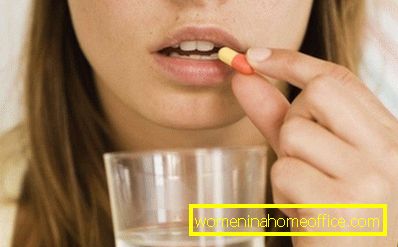Preparations for increasing hemoglobin in women and children
The normal level of hemoglobin in the blood is 13-18 g / dl for men and 12-16 g / dl for women. If your hemoglobin level is low enough, you can increase it by changing your eating habits, using natural remedies, and using iron-containing medicines if necessary. Consider drugs to increase hemoglobin levels.
When should I take iron supplements to increase hemoglobin?

Since iron is an important element for the production of hemoglobin, to maintain it, it is necessary to consume foods rich in it. And for iron to digest well, you need vitamin C. For the production of red blood cells, folic acid is necessary (vitamin B9). All these components can be replenished in different ways by eating foods that contain them, using dietary supplements.
In critical conditions, medicine comes to the rescue with its arsenal of hemoglobin-enhancing drugs, in extreme cases, they resort to blood transfusions. A deficiency of hemoglobin in the blood is called anemia. Common signs of the disease include:
- weakness, fatigue;
- tachycardia;
- shortness of breath on exertion;
- pale skin;
- fever;
- headache;
- dizziness or ringing in the ears;
- fragile and soft nails;
- dry and brittle hair;
- cracks in the corners of the lips;
- chronic inflammatory conditions.
After consultation with the doctor and testing, if necessary, a treatment plan is appointed:
- 20 to 25 mg of iron per day to stimulate hematin production;
- 400 micrograms of folic acid daily will increase the production of red blood cells that carry hemoglobin;
- 50 to 100 mg of vitamin B6 per day;
- 500 to 1000 mg of vitamin B12 per day;
- Vitamin C up to 1000 mg per day increases iron absorption.
Side Effects of Iron-Based Drugs and Contraindications
When taking pills to increase hemoglobin, side effects may occur:
- abdominal pain;
- heartburn;
- nausea;
- vomiting;
- diarrhea or constipation;
- intestinal cramps.

In addition, each group of drugs has its own contraindications. Iron-containing agents are not recommended in the presence of pathologies such as:
- hemolytic anemia;
- aplastic;
- B12 deficiency anemia.
B9 vitamins are contraindicated in such cases:
- with a lack of vitamin B12;
- with shortage of sucrase;
- with fructose intolerance;
- children up to 3 years.
Vitamin B12 not recommended in the presence of the following factors and diseases:
- thromboembolism;
- erythremia;
- erythrocytosis;
- pregnancy and lactation.
Vitamin B6 is best not to take in the development of peptic ulcer and ischemic heart disease. The general contraindication for all means is individual intolerance.
Features of medication
The decision on treatment with iron preparations is made by the doctor individually. Increasing the iron content is provided by tablets, drops, syrups, or directly by intravenous administration, depending on the tolerability and circumstances. There are bivalent drugs (Fe II) and trivalent iron (Fe III).
It is recommended to start the medication with a dose of 80 to 100 mg per day and increase to 200 mg from the second week of treatment. The optimal time for receiving ferrous iron - an hour before meals. Trivalent compositions are recommended to be taken during meals. Usually the treatment lasts from 3 to 6 months.
Bivalent drugs, as a rule, are better absorbed than trivalent. Currently available intravenous iron preparations provide more of it for a shorter period of time. This procedure is more convenient for patients.
How to increase hemoglobin in women drugs?

According to the WHO, most often anemia is observed in women and young children. The disease is of different types, and treatment methods depend on the reasons that caused it. Women are most often prone to iron deficiency anemia, which is associated with blood loss during menstruation, as well as with increased demands on the blood supply to the reproductive organs during pregnancy.
Some types of anemia, for example, in pregnant women, are considered normal. But there is also such an anemia, which can pose a threat to health throughout life. Treatment of iron deficiency is usually associated with taking drugs that contain it in one form or another:
- iron fumarate (Fumafer);
- iron ascorbate (Ascofer);
- ferric chloride (Ranferon-12);
- polymallose hydroxide (Maltofer);
- iron succinate (Innofer);
- ferric sulfate (Tardyferon);
- for intravenous (Venofer).
During pregnancy, an increase in blood plasma causes a normal drop in hemoglobin. This decline begins after the eighth week and stabilizes between the 16th and 22nd. The hemoglobin level of a pregnant woman must be at least 115 g / l up to 22 weeks. Hemoglobin below 100 g / l means anemia.
In acute iron deficiency in pregnant women, such drugs are prescribed by a doctor to increase hemoglobin:
- vitamin B12 - intravenous injections;
- vitamin C (ascorbic acid) - injections;
- Maltofer Chewable Tablets;
- complex multivitamin with bivalent iron Fenules;
- Ferroplex is a blood stimulant;
- tablets Sorbifer Durules.
How is anemia treated in children?
Babies are born with a supply of iron, which is transmitted to them from their mother’s blood during pregnancy. Up to 6 months of life breastfed babies get what they need with their mother's milk. When you cannot breastfeed, use infant formula fortified with iron during the first year of life. If your child has anemia due to iron deficiency, the doctor may prescribe supplements.
The most preferred treatment for anemia, in the opinion of WHO, are bivalent iron gluconate preparations. They are well tolerated by children during the reception and, in comparison with other means, have a minimal number of side effects. When medicamentous increase of hemoglobin in children, it is necessary to strictly follow the instructions to the drugs and the instructions of the doctor.
At the end of our conversation, I would like to remind you that proper nutrition and a healthy lifestyle play an important role in the treatment of anemia. Be healthy!